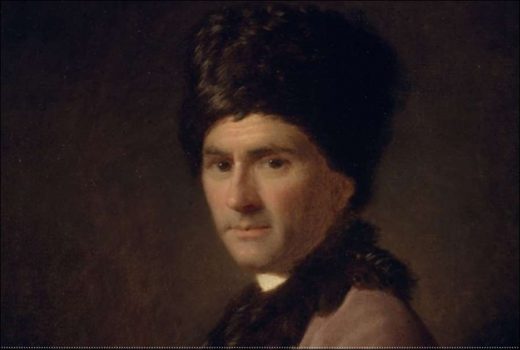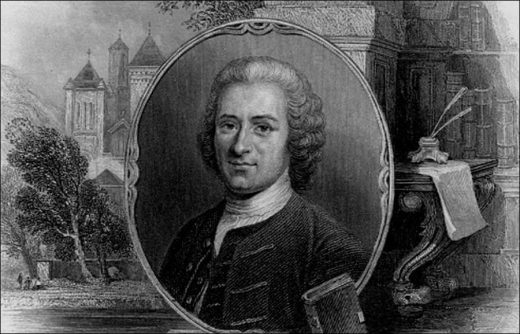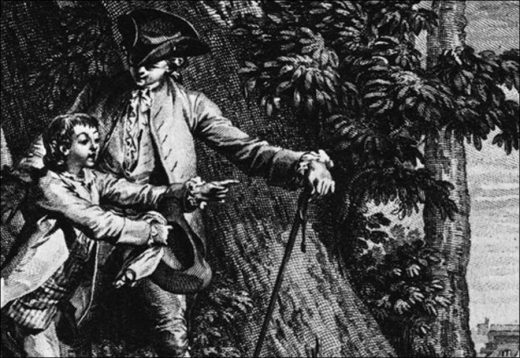Jean-Jacques Rousseau, philosopher of nature and truth. We talked about Jean-Jacques Rousseau, the “philosopher of nature and truth”, how he communicated with nature, and his botanical curiosity, which calmed his turbulent inner world during his years in exile.
Rousseau, the father of romanticism, was criticizing the “arrogant” human type that dominated nature in the age of reason in his autobiographical work titled Dreams of the Solitary Traveler. While telling about his wanderings in nature in the last years of his life, he goes on a journey towards his inner world and past; He criticized the bourgeoisie, which guided history with its own “mind”, and called for a “return to nature”. He wrote this work in the last years of his life, when he was excluded from Paris circles…
His work Emile, or On Education, published three years ago, was condemned and censored by both the Roman Catholic and Protestant churches. His crime was that he had a Catholic priest say ideas that contradict religious belief, such as original sin and disbelief in revelation, and signed the work in his own name. His books were burned and he faced death threats. When an arrest warrant was issued for him, he fled from France to Motiers in Switzerland, and then to Saint-Pierre, an island in Switzerland’s Lake Bienne, when his house was stoned in the middle of the night.
While he was getting away from the hustle and bustle and confronting his inner world, he took up the challenge of studying the plant diversity of the island of Saint-Pierre. More than just a hobby, botany was a way for him to perceive, realize and improve nature, which he valued very much. While nature saved him from the Paris environment and his own inner unrest, it also allowed him to rediscover the good in himself. He spent hours on the small island, making drawings and taking notes, and usually had samples to section and dry when he returned home. While he was making meticulous observations of the structure and reproduction of plants, he was also working on Flora Peninsularis, a study of plant life on the island.
Nature did not know what evil, cruelty and deception were. “Nature never lies,” he wrote, “everything that comes from nature is true, you can’t find anything wrong with it.” His was an existential retreat… People had to adhere to their primitive nature and abide by the simple principles of goodness given to them by the “Divine Being”. Botany was the way to rediscover these principles through reason and observation ability. The important thing was not to memorize the Latin names of plants, but observation and analysis.
One of Rousseau’s key insights about himself was to discover what was the best way for him to nourish his soul—this was the act of “turning inward.” In other words, it was the act of looking within oneself, examining one’s heart and soul in its loneliest state, while thinking about man, nature, the universe, and creation. Botany was a philosophical pursuit; He expresses this in his Dreams of the Lonely Traveler:
“It costs me nothing to wander recklessly from plant to plant, from flower to flower, to examine them, to compare their different features with each other, to note their similarities and differences, and finally to study the order of plants in order to understand the delicate workings of these living mechanisms, but occasionally to learn their general rules. When I manage to discover the cause and purpose of the differentiation in their structure, I take great pleasure in feeling gratitude and admiration for what allows me to enjoy all this.”
With the discoveries made in the 18th century, the classification method and the cultivation of different species, botanical science also rose, and as colonial powers spread, plant collections and greenhouses expanded… According to Rousseau, turning plants into a tool suitable for human needs was destroying botany. He was actually excited by the grand order of existence, which he realized when he looked at plants “less civilized” than his contemporaries. Most people have a strong need to be a part of or connected to something bigger than themselves. For Rousseau, that greater “something” is usually nature itself. We can also understand how he made that connection on his seventh trip:
“Trees, bushes and plants are the decoration and clothing of the earth. Nothing is sadder than a barren and denuded land, with nothing visible but stones, mud and sand. However, the earth, enlivened by nature and dressed in its bridal gown amidst cascading waters and singing birds, in harmony with the three kingdoms, presents to man the only show in this world, full of life, interest and attraction, that will not tire the eyes and the heart.”
In his book, Rousseau also explains how studying botany during his lonely walks helped him distract from thoughts about his misfortunes. He was most attracted to their scents, intense colors, and “botanical objects whose graceful shapes seemed to compete with each other for his attention.” As someone who has always enjoyed nature and spent most of his most enjoyable and peaceful periods in nature, the places he walks also trigger Rousseau’s memories of happier times. He writes on his seventh trip:
“I will always remember throughout my life the plant classification I made one day near Robalia, Judge Clerc’s mountain. I was alone, wandering in and out of recesses in the mountains. As I went from grove to grove, from rock to rock, I came across a secret clearing. It was so hidden that I had never encountered such a wild sight in my life. The larch trees, many of which had fallen from old age and were entangled with huge beeches, had blocked this area with obstacles that were difficult to overcome.
The few openings left by this dark courtyard offered nothing but truncated rocks and terrible precipices that I would hesitate to look at when I lay prone. The screams of the eagle owl, owl and osprey echoed in the cracks of the mountain, and a few small rare but familiar birds were trembling with the fear of this loneliness. There I found ‘Dentaria Heptaphyllos’, cyclamen, bird’s nest root orchid, ‘Grand Laserpitisum’ and a few other plants that impressed and entertained me for a long time.
However, falling under the strong influence of vague objects, I forgot about botany and plants, sat down on the hybrid grasses and mosses, and began to dream of my happiness, thinking that I was there, isolated from the whole universe, in a shelter from which my executioners would not drag me out. Soon this dream was interrupted by pride. I was comparing myself to one of those great travelers who discovered one of those deserted islands, and I gently said to myself, ‘I am undoubtedly the first mortal who has managed to get this far.’ I almost saw myself as another Columbus.”
Visits: 46





